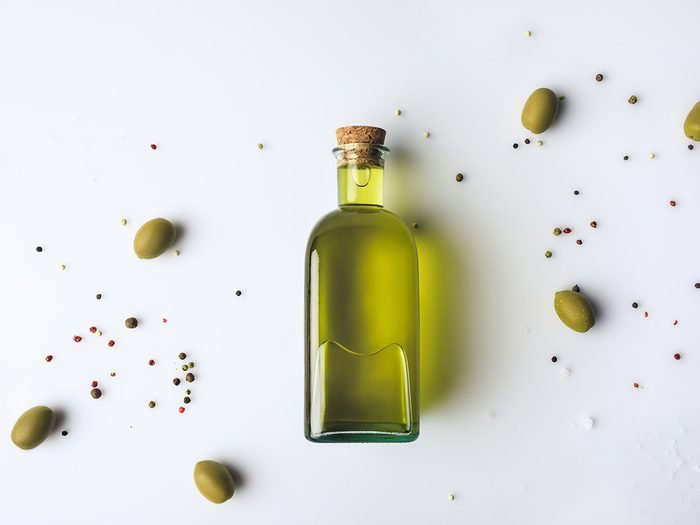How Important Is It to Buy *Only* Organic Foods?

Fact: Organic food is expensive. Here's what's worth buying organic, and when conventional products are just fine.
The first thing you need to know is that “organic” is a description of how food is produced, not necessarily how healthy it is, says Amanda A. Kostro Miller, a registered dietitian and an advisor for Smart Healthy Living. The biggest factor in the organic label is whether or not certain pesticides and chemicals were used during the farming or harvesting process. So if you’re concerned about toxins in your food, it makes sense to buy organic—at least in some cases.
What’s more, organic meat and organic dairy could have more healthy fats, according to a pair of studies published in the British Journal of Nutrition. And organic produce has more antioxidants than conventional varieties, according to a separate study published in the same journal. But nutrition varies greatly between foods and while it might be worth it to buy organic for foods appearing on the Environmental Working Group’s “Dirty Dozen” list, there are plenty of foods where conventional is just as good as organic, Kostro Miller says.
(Related: 8 Foods You Should Always Buy Organic)
SKIP: Organic macaroni and cheese
White pasta doesn’t need to be organic because it’s so highly processed that the outer layers of the wheat—the part that pesticides adhere to—are stripped off, making pesticide residue of little concern, says Jodi Greebel, a registered dietitian and school and camp nutrition consultant with Citrition.
SKIP: Organic seed butters
Going organic for peanut butter is a good idea, but save your money when it comes to seed butter, Greebel says. “Sunflower seeds, for example, generally don’t have quite as high a pesticide residue,” she explains.
SKIP: Organic olive oil
The sourcing and quality of the olive oil variety you choose are far more important than whether or not it’s organic, says Jennifer Lease, a chef and registered dietitian nutritionist. “You want extra-virgin olive oil because it is the first press of the olives and has not been refined or treated chemically,” she explains. “Pay attention to the packaging and label of the oil, as well. It should be in a dark or opaque bottle to avoid contact with light [which degrades the quality], and the label should identify the country of origin and harvest date and ensure that it is truly extra virgin.”
SKIP: Organic fish
If you see “organic” on a fish or seafood label, be very wary, says Lease—there is no official standard for organic seafood, making the word meaningless in this case. “The aquatic environment where wild fish live cannot be controlled and therefore we simply don’t know their feed or potential contact with environmental toxins and debris,” she explains. Instead, the most important quality to look for is how the seafood is sourced. “Choose local fish when you can, and wild over farmed,” she says. Eating smaller fish, like sardines [versus something larger and higher up in the food chain, like tuna], can also help you avoid toxins.
SKIP: Organic avocados
Your homemade guac is safe, regardless of whether you used organic or conventional avocados. “I worked with an avocado company that grew both conventional and organic and learned that avocados are only sprayed every seven years, and even then, the pesticide for organic versus conventional is similar—it’s just the application method that’s different,” explains Ariane Resnick, a certified nutritionist, chef and author.
SKIP: Organic citrus fruits
Similar to melons, citrus fruits like lemons, limes and oranges have thick enough skins to deter bugs, meaning they have less need for pesticides, and when they are sprayed, the chemicals stay on the peel, says Kelly Kennedy, a registered dietitian. “Since you’ll be peeling it off and throwing it away anyway, buying organic oranges isn’t the best bang for your buck,” she says. “But I do recommend thoroughly washing the skin of any fruit or vegetable before you cut into it to remove any dirt, germs and so on, so that you’re not pulling those through the flesh of the produce as you cut.”
Next: How Do I Budget for Wellness When I’m Trying to Cut Back on Everything?




